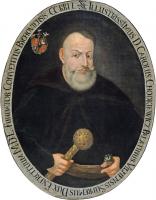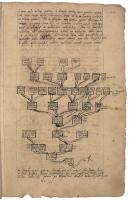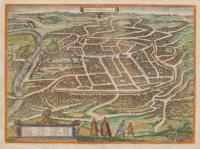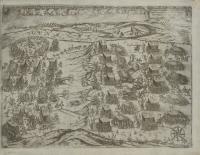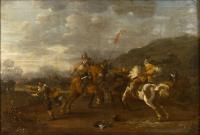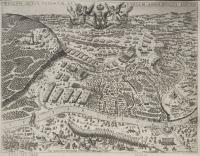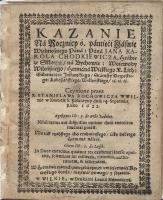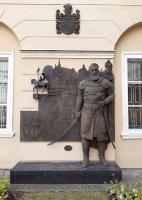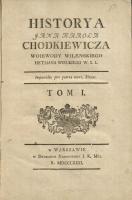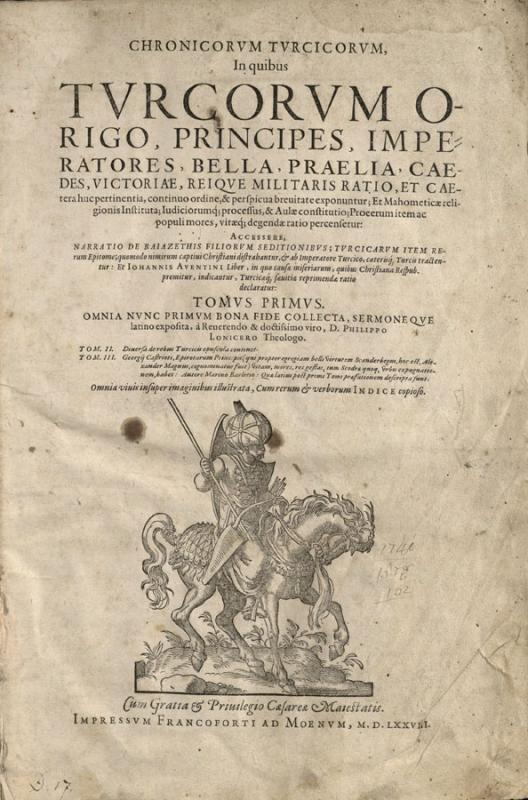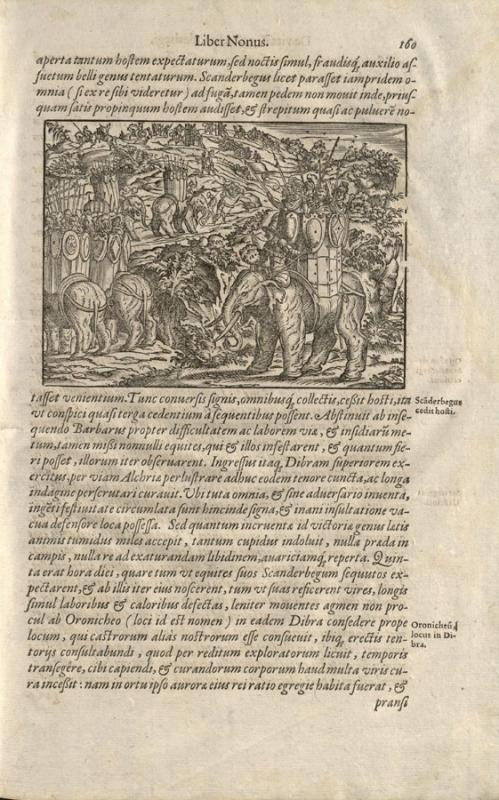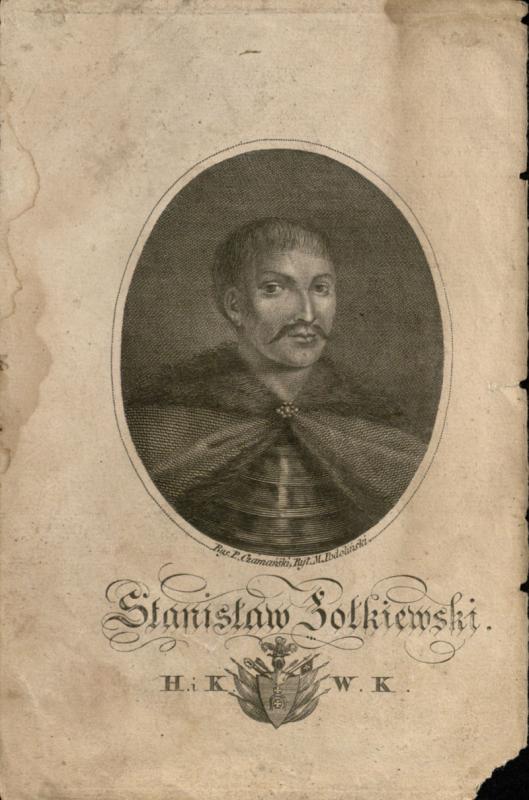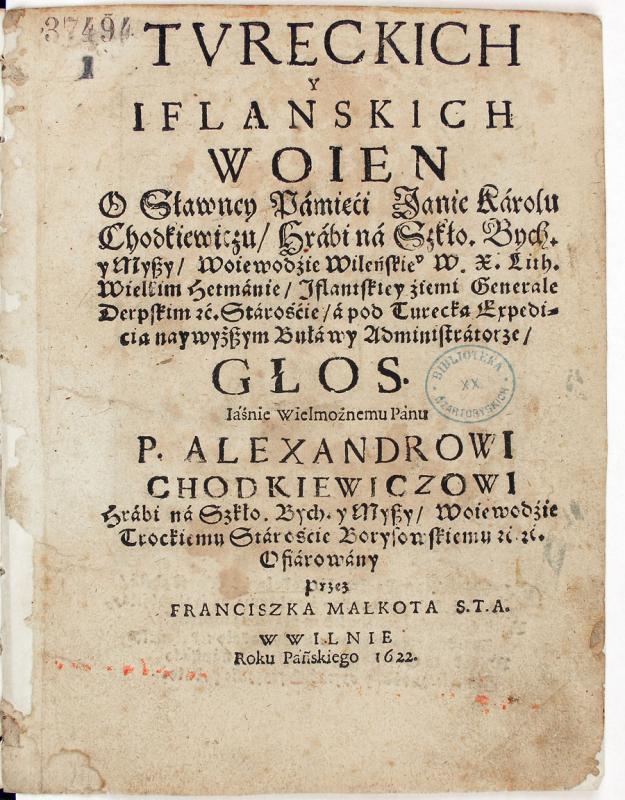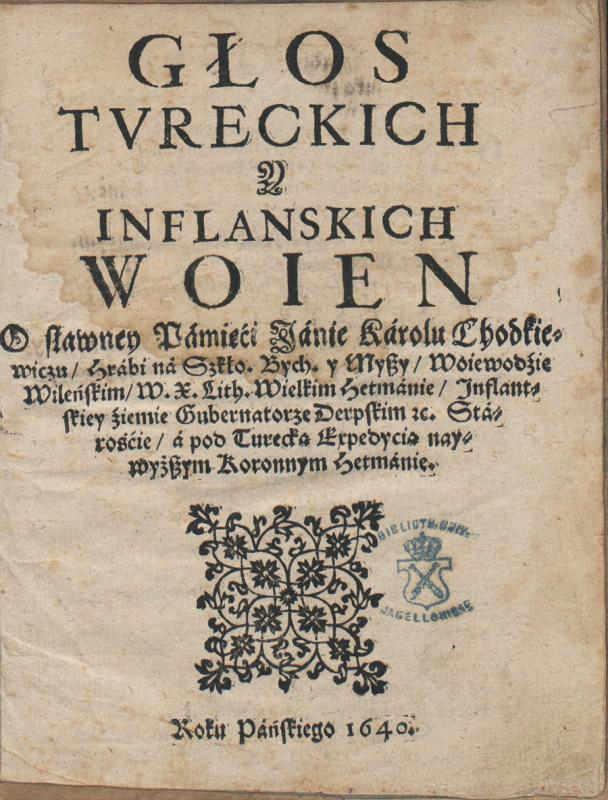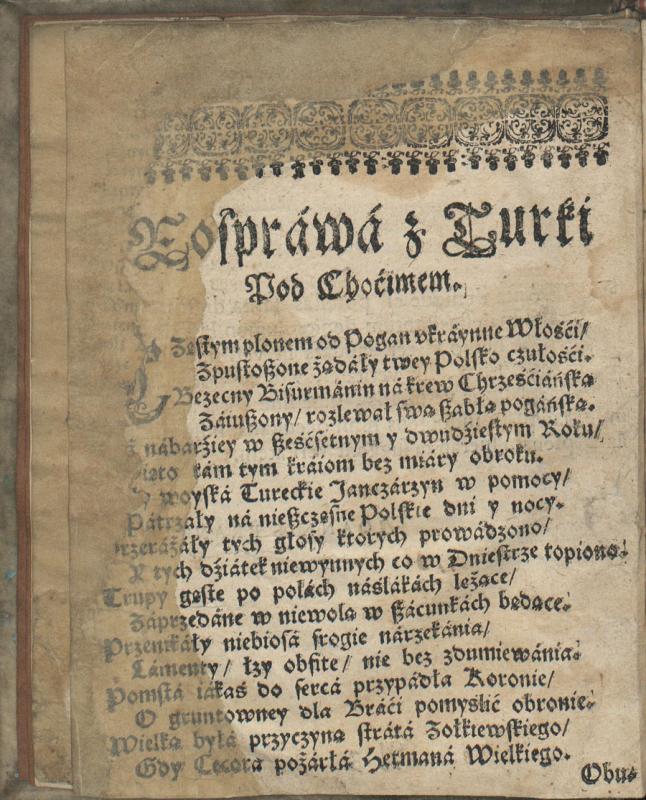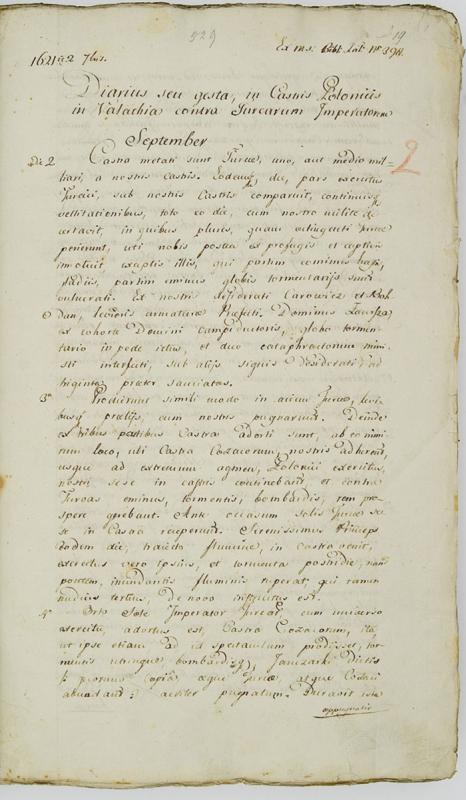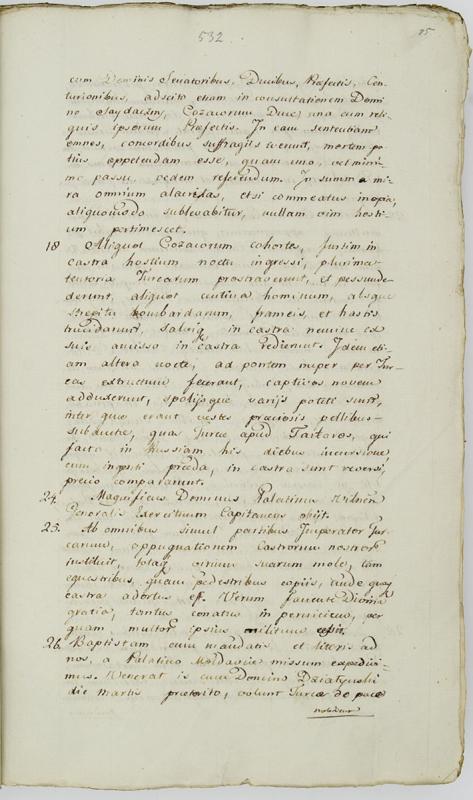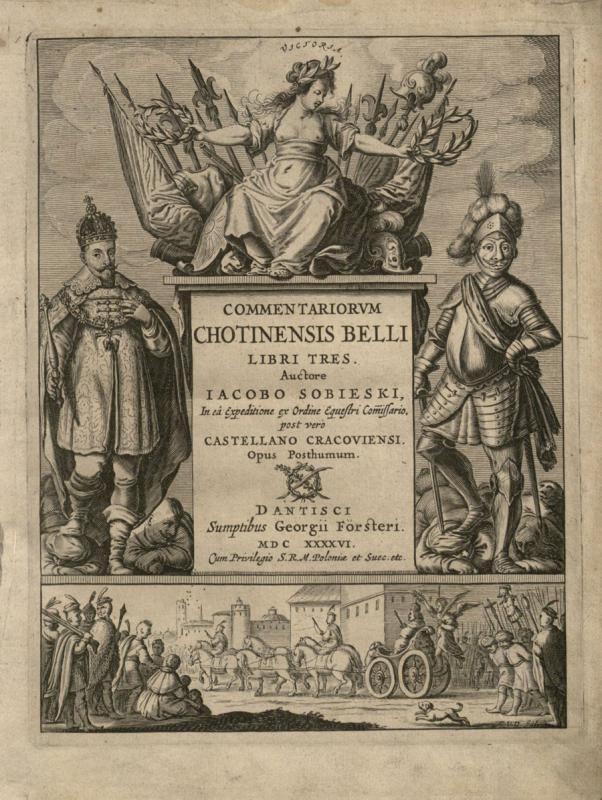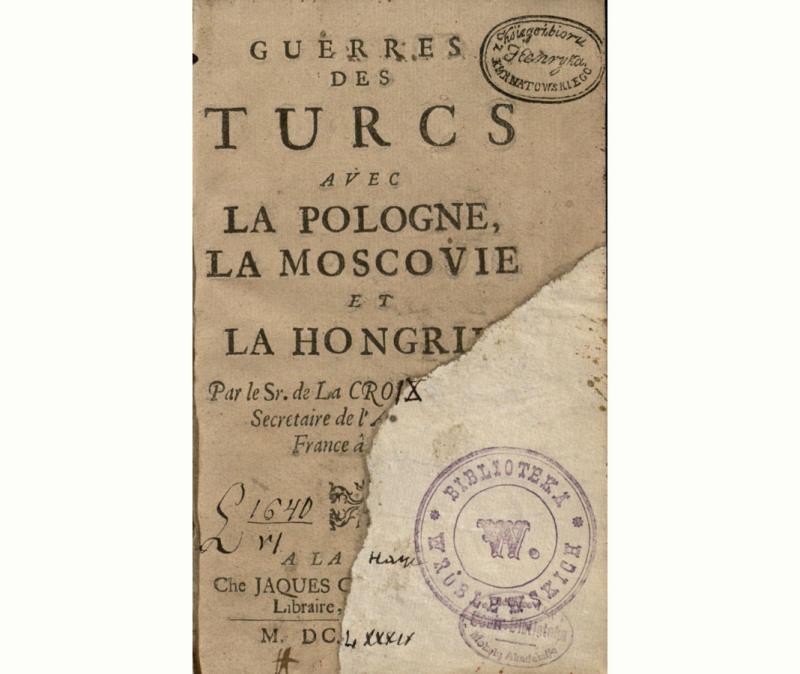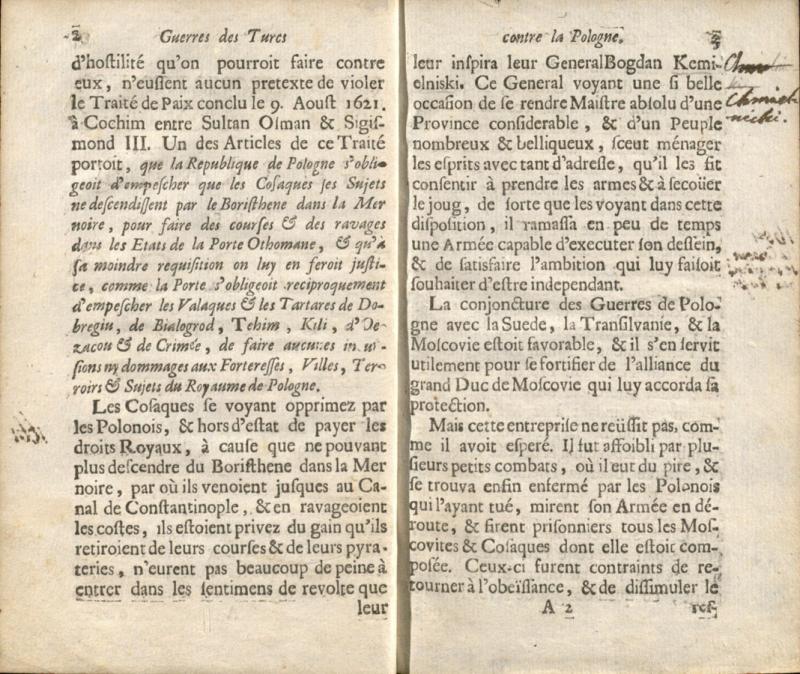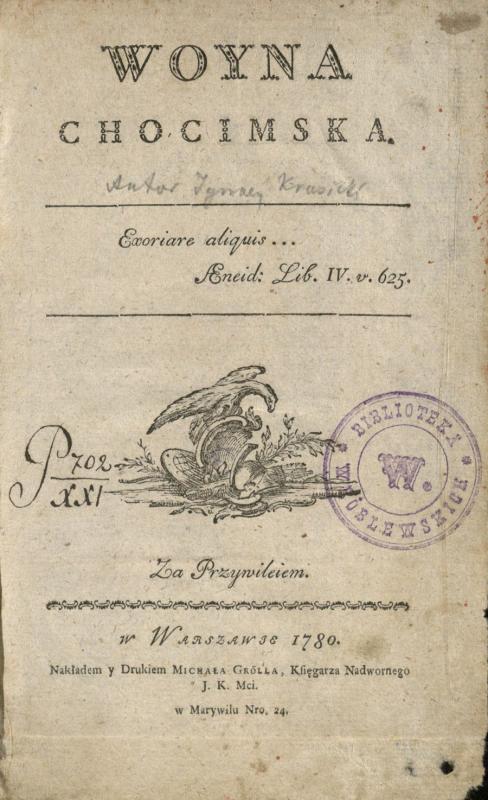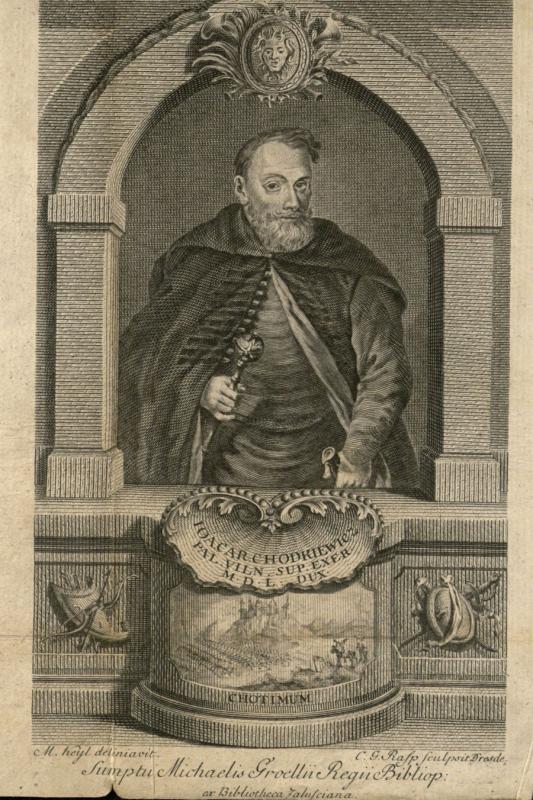Jan Karol in the war against the Turks. The battle of Khotyn
In 1620‒1621, the war of the Polish-Lithuanian Commonwealth against Turkey began with a painful defeat. In September of 1620, at Țuțora, a place near Iași in Northeastern Romania, the Polish Army under command of Grand Hetman Żółkiewski lost an important batt;e to the Turkish army, which was several times larger. Almost all Polish troops and many commanders, including the Grand Hetman, were killed or taken prisoners during the eleven days of combat. After this defeat, the King appointed Jan Karol Chodkiewicz to command the Commonwealth’s forces. Over August to October of 1621, in the battle of Khotyn (a fortress in present-day Western Ukraine near Kamianets-Podilskyi), the army under his command (about 26 thousand Polish and Lithuanian troops and about 30 thousand Zaporozhian Cossacks) stopped the advance of the trice-larger Turkish army (according to some sources, it had about 170 thousand troops). During this campaign, on September 24, Chodkiewicz died in the Khotyn fortress.
LMAVB RSS V2-72
“Turkish chronicles telling of the origin of the Turks, rulers, commanders, wars, battles, defeats, victories, ways of fighting, etc.” is a copiously illustrated three-part treatise published in one volume in Frankfurt am Main. It shows with what a fierce enemy numerous European nations had to fight for several centuries.
LMAVB RSS G1-146
Dailininkas Giacomo Lauro. 1624 m. vario raižinio nuotrauka. Prieš 1912.
Lenkijos nacionalinė biblioteka (Varšuva) F. 120608/IV
Lenkijos nacionalinis muziejus. Čartoriskių biblioteka (Krokuva) 37494 I
“Voice of the wars with the Turks and in Livonia [praising] Jan Karol Chodkiewicz of glorious memory” is a hymnal poem by a theology student from Vilnius Academy, Franciszek Małkot. It describes the battle of Khotyn, victories achieved in the Livonian war, and the appearance of Jan Karol Chodkiewicz, a man called Father of the Fatherland. The hymns were sung to popular melodies of those times. The score was included in the second edition of the hymnal poem published in Vilnius in 1624, which is not extant.
Jogailos universiteto biblioteka (Krokuva) 17654 I
This is the third edition of the edited and supplemented collection of hymns by Franciszek Małkot. The book contains the following hymns: “Voice of the Chodkiewicz Griffin”, “Voice of the Turkish War”, “Voice of the Livonian War”, “Voice of Beauty”, “Voice of Glory” and “Hymn of the noble Prince Samuel Korecki”.
Jogailos universiteto biblioteka (Krokuva) 311062 I
“The truthful diary of the expedition of the Polish Crown and the Grand Duchy of Lithuania against Turkish caesar Osman, completed with good fortune at Khotyn in Wallachia in year 1621” is heroic poem by Jonas Rudamina, Nowogrudok Castellan and a participant in the battle of Khotyn. It depicts, in detail, the course of the 1621 campaign. As Kojalavičius, who attributes this poem to Rudamina, writes in his “Nomenclator”, “Rudamina, keeping his name silent, published the history of the Wallachian War, in Polish and in verse, by which he protested against Latin publications by certain persons who cruelly withheld the honor from where it was due, and who undeservedly deprived the conquerors of glory”.
Lenkijos nacionalinis muziejus. Čartoriskių biblioteka (Krokuva) Rkps. 112 IV
Diary of the Khotyn campaign for the period from September 2 to October 15, 1621.
LMAVB RSS XVII/164
“Three books of commentaries on the Khotyn war” by a participant in the Moscow campaign of 1617‒1618 and the battle of Khotyn, the diplomat Jakub Sobieski, comprehensively describe the prehistory, course and conclusion of the campaign. As the author himself participated in the negotiations with the Turks regarding the truce, this place in the book provides valuable information on the end of the campaign. The book (p. 135‒144) gives account of the death of Chodkiewicz and provides, following in the steps of Szymon Starowolski, a detailed description of the commander’s life, appearance, merits, and victories.
LMAVB RSS XVII/372
The treatise on Turkish wars with Poland, Moscow and Hungary by a French orientalist and diplomat, François Pétis de La Croix (1653–1713), published in 1689 in Hague, mentions the peace treaty between the Osman Empire and the Polish-Lithuanian Commonwealth that ended the battle of Khotyn.
LMAVB RSS L-18/1352
The heroic poem “War of Khotyn” by the most prominent Polish poet of the Enlightenment, the Bishop of Varmia and later, the Archbishop of Gniezno, Ignacy Krasicki (1735–1801) sings of the battles of 1621 and extolls the self-sacrificing struggle for the faith and freedom put up by the defenders of the fatherland. The title page is preceded by an inset – an engraving from the Zaluski library portraying the Vilnius Voivode, Jan Karol Chodkiewicz.

